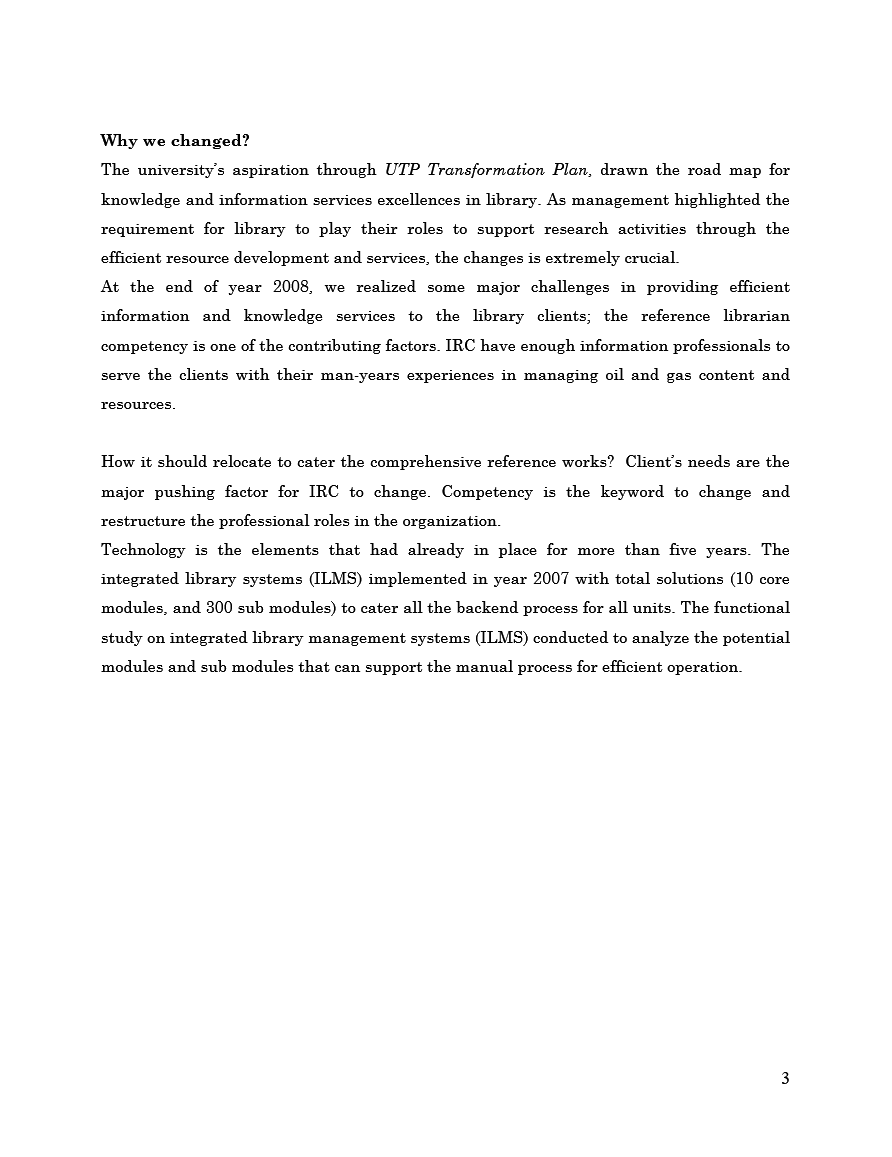Business improvement process in the library transformation agenda: the experiences of Information
- Sharifah Fahimah

- Apr 23, 2019
- 2 min read
Updated: Apr 24, 2019
Business improvement process in the library transformation agenda: the experiences of Information Resource Center (IRC), Universiti Teknologi PETRONAS.
Sharifah Fahimah SaiyedYeop
Information Resource Center,
UniversitiTeknologi PETRONAS
31750 Bandar Seri Iskandar, Tronoh
PERAK DARUL RIDZUAN
Abstract
This paper focusing on the methodology used in establishing change in information services trend and the implementation of business improvement process (BIP) in routine technical and non technical environment. The blended of skills, experiences and state of the art technology in managing resources (human capital, knowledge and surrounding) are the ingredients for successful changes in many organization. Challenges on identifying management aspiration, user’s needs, and future library “look and feel” are the content of information services upgrades plan in our five years strategic plan. BIP in materializing transformation are mandatory elements to ensure the changes are taking place at every level in the road map. Information Resource Center, UniversitiTeknologi PETRONAS found the impact of transformation in the business processes as well as putting value added into the end user services.
Keywords: transformation, change, business improvement process, knowledge management, human capital











References;
Kotter, John (1995). Leading the Change: Why Transformation Effort Fail” by John Kotter. Harvard Business Review
2. Senge, P. M. (1990). The Fifth Discipline: The Art and Practice of the Learning Orginization. New York: Currency Doubleday.
3. Kleiner, A., Roberts, C., Ross, R., and Smith, B. (1994) The Fifth Discipline Fieldbook: Strategies and Tools for Building a Learning Organization. New York: Currency Doubleday.
4. Senge, Peter, (1999) The Dance of Change: The Challenges to Sustaining Momentum in Learning Organizations with Art Kleiner (Editor), Charlotte Roberts, Rick Ross, George Roth, and Bryan Smith New York: Currency Doubleday.
5. Lambe, Peter (2006) Why KM is Hard To Do: Infrastructure, KM and Implementing Change. Green Chameleon, Straits Knowledge website
Jean Lave and Etienne Wenger (1991) Situated Learning: Legitimate Peripheral Interaction (Cambridge: CUP);
Don Cohen and Laurence Prusak (1991) In Good Company: How Social Capital Makes Organizations Work (Cambridge, Mass: Harvard Business School Press,
John Seely Brown and Paul Duguid (2000) The Social Life of Information (Cambridge, Mass: Harvard Business School Press







Comments